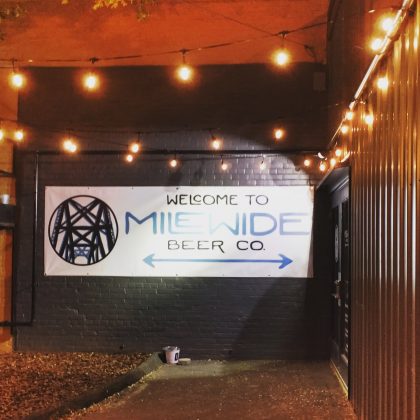 Over the last two years, I have been startled a number of times by how easy people think it is to have a brewery. I’m not even talking about the actual brewing process, mind you. Nor am I talking about the myriad challenges of actually operating a business, although that is much closer to my actual point. I’m talking specifically about the hurdles created by the licensing and registration demands in the brewery game. As producers of the vile, sinful substance known as alcohol, we are pretty heavily regulated. I’m sure nuclear plants are subject to one or two rules more than we are, but we still have quite a few. Since some yokels out there seem to think all you need to do is buy your gear, make a brew, and find people to buy it, I thought I’d shed a little light on how many varied licenses and affiliated documents we actually have to have to operate.
Over the last two years, I have been startled a number of times by how easy people think it is to have a brewery. I’m not even talking about the actual brewing process, mind you. Nor am I talking about the myriad challenges of actually operating a business, although that is much closer to my actual point. I’m talking specifically about the hurdles created by the licensing and registration demands in the brewery game. As producers of the vile, sinful substance known as alcohol, we are pretty heavily regulated. I’m sure nuclear plants are subject to one or two rules more than we are, but we still have quite a few. Since some yokels out there seem to think all you need to do is buy your gear, make a brew, and find people to buy it, I thought I’d shed a little light on how many varied licenses and affiliated documents we actually have to have to operate.
The first thing to remember is that I am talking as the owner of a brewpub in Louisville, KY. Alcohol laws can vary a great deal state to state, and cities can all have some of their own requirements too. Production breweries can also be handled differently than brewpubs. The info below is just about my situation, not every brewery around.
The primary federal agency we deal with is the Alcohol and Tobacco Tax and Trade Bureau (TTB). One of the primary documents any brewery in America has to have is a valid TTB Brewer’s Notice. I’m not entirely sure why they call it a notice since it can, in fact, be denied, which really makes it an application, but I digress. This rather daunting document is required to have federal permission to brew beer. There is a legion of additional documents you need to accompany the Brewer’s Notice, but the Notice itself is the most important part. You also have to keep up with regular reports of operations. As you operate, you will continue to stay in touch with the TTB because those guys have to approve the label for any beer you ship across state lines. Also, there is no living human being, including the TTB staff, who has a crystal clear grasp on what the rules are for label approval. There’s a ping pong match of submission, comment, and modification that goes on for an indeterminate length of time until you get approved.
Perhaps due to the grant of power in the 21st Amendment, the state governance is the most bulky. We deal with the Department of Alcoholic Beverage Control (ABC). Depending on your particular brewery business model you may need anywhere from one to six or seven state licenses. Each of these comes with its own cost and, after a rather extensive application process, requires annual renewal. Substantial costs are attached to each of these licenses. Additionally, Kentucky requires that a written contract, which follows certain statutory rules be in place at all times between a brewer and any distributor that moves product in Kentucky. A Form 714 Brand Registration must also be approved for each brand moved through each distributor in the state. Since we choose to move our beer to other states, we also have to comply with whatever out-of-state supplier rules and licenses each other state requires. Sometimes this is as simple as a one page form to let them know you will be shipping beer into their state, but other times it is an extensive application paired with substantial fees and followed up by monthly reports. Brand registration also may or may not be required for any given state.
The City of Louisville also gets involved mostly in a permissible mimic of the state involvement. May of the state licenses have a city equivalent that must be applied for, renewed, and paid for in the same manner as the state licenses. Both ABCs also have their own group of enforcement officers that can come inspect you at any time. The city also requires all manner of codes, permits, regulations, and other miscellany to be obeyed in order to operate or continue operation. When you are a brewpub like Against the Grain, you are also subject to the requirements placed on a restaurant, including but not limited to a Permit to Operate, regular Health Department inspections, Fire Department occupancy limits, and a bevy of other pleasantries.
And the taxation. Oh, Lordy, the taxation. That’s probably a separate post.
What’s my point here? I don’t think this is a rant about the onerousness of government. I also don’t think this is a plug to get an attorney (although that is always a good idea). This definitely isn’t intended to be a comprehensive checklist for folks planning on opening a brewery. I guess what it all boils down to is that, if you are going to open a brewery, for the love of the Flying Spaghetti Monster, please know someone who can use and understand words and numbers. Best of luck, and I’ll catch you next time! Until then, faithful readers, thanks for reading, and happy drinks!
P.S. Remember to let me know if you have some specific topic you would like me to babble about next time. You can tell me in person, by e-mail, or in the comments right down below.





